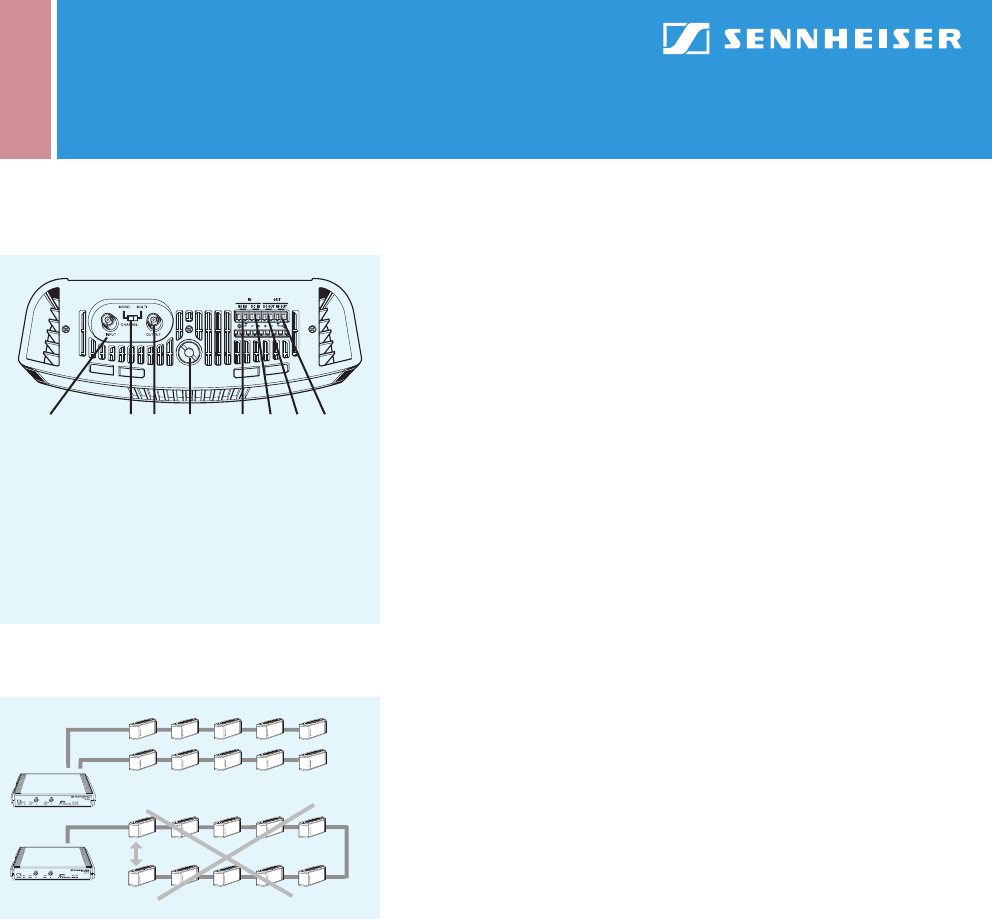
SZI 1015
Sockets and controls of the SZI 1015
With its compact size and various thread sizes (5/8“, 3/8“ and 1/2“), the SZI 1015
radiator makes for versatile mounting. It has a coverage area of up to 400 m
2
in
single-channel operation and can be switched between mono and multi-channel
operation. Please note that in multi-channel mode, this maximum coverage area
decreases proportionally with the number of channels transmitted.
The RF signal from the modulator is fed to the radiator via a BNC socket (1) and
can be daisy-chained to other radiators via the BNC RF output (3). Alternatively,
the modulator’s RF signal can also be fed to the barrier strip. Terminal 5 is the RF
input and terminal 8 the RF output for daisy-chaining the signal to further radia-
tors. When using an SI 1015 modulator, the SZI 1015 does not need to be connected
directly to the mains via an NT 1015 mains unit, but can be supplied with the correct
DC voltage via the SI 1015 modulator.
The necessary supply voltage is also available at the barrier strip, terminal 6 being
the DC input and terminal 7 the DC output. For more information on how to connect
the signal and supply cables between the modulator and the radiator please refer
to the SI 1015 description. The SZI 1015 is fitted with an automatic on/off function:
when it receives a carrier from the modulator, it switches on – and off again when
the RF signal is no longer present. The switching threshold is 50 mV.
When setting up a radiator chain, you should bear in mind that the last radiator
in an RF chain must be fitted with a 50 Ω terminating impedance in order to avoid
standing waves. You should also keep in mind that signals can cancel out when
cables are very long and coverage areas of radiators overlap. In order to avoid recep-
tion problems, you should use both RF outputs of the modulator and set up two RF
chains (see also Planning Theory).
1 RF input (BNC)
2 Mono/multi switch
3 RF output (BNC)
4 Thread for mounting
5 RF input terminals
6 DC input terminals
7 DC output terminals
8 RF output terminals
1 2 3 4 5 6 7 8
50 Ω
50 Ω
Creating RF chains
IR Audio Transmission Technology | Modulators/Radiators




